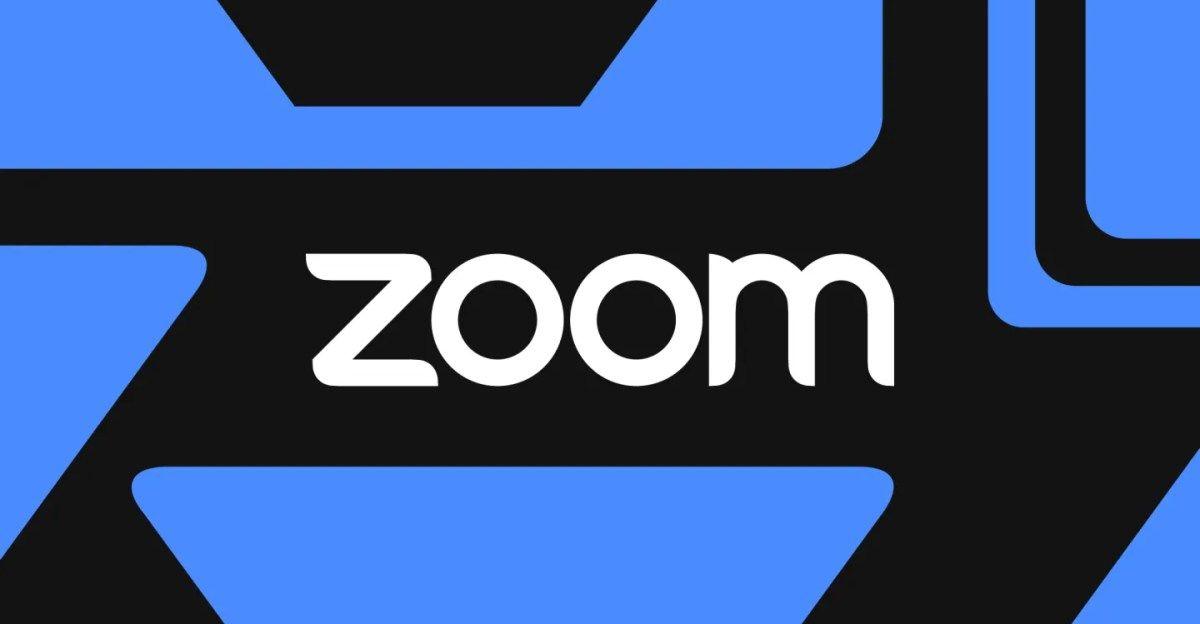Zoom Partners with Suki to Offer AI-Powered Medical Note-Taking for Telehealth
3 Sources
3 Sources
[1]
Zoom partners with Suki to offer AI-powered medical note-taking | TechCrunch
Startups that build AI medical assistants and medical scribes, which save doctors time that they would otherwise spend taking notes and populating medical records, have been booming over the past year. And incumbents now want to get in on the action. On Tuesday, video-conferencing company Zoom said it is partnering with Suki, one such AI medical scribe provider, to offer doctors on its platform an AI scribe that can take notes about their consultations with patients. Zoom is used for about 36% of all telehealth visits in the U.S., making it the most popular video-conferencing platform, according to industry intelligence group Definitive Healthcare. Punit Soni, founder and CEO of Suki, told TechCrunch that Zoom had considered every other AI medical scribe startup before choosing Suki. The startup closed a $70 million Series D earlier this month. Zoom's founder and CEO, Eric Yuan, told Fortune earlier this month that the company is aiming to morph from a conferencing company to one focused on AI tools for workplaces. Amazon-owned One Medical has also said it is integrating AI tools to help clinicians on its platform save time on administrative tasks. Instead of partnering with a startup in the space, One Medical is leveraging Amazon's Bedrock, a service that helps build AI applications, and AWS HealthScribe, Amazon's home-grown note-taking platform for clinicians. Large healthcare systems and smaller doctors' offices have found that AI software can save them hours spent on keeping up with necessary documentation. Most companies in the space have also seen their revenue tick up fast, investors say. Other startups that use AI for medical note-taking include Abridge (reportedly raising $250 million at a $2.5 billion valuation), Nabla and Ambiance Healthcare. Microsoft's Nuance is also an important player in this market. Although the market is crowded, and there is a risk that general-purpose foundational models may eventually be able to replace AI medical scribe startups, investors say that there's sufficient differentiation between these companies for now. For example, Abridge serves large medical systems, while others are geared towards smaller medical offices.
[2]
Zoom x Suki partnership will power AI medical scribes
The demand for AI medical assistants and scribes has surged over the past year, with startups in the space rapidly growing to help healthcare providers save time on documentation. Now, established players want a piece of the action. Zoom, the most popular video-conferencing platform in the U.S. for telehealth visits, is stepping into the medical AI arena with a partnership with Suki, an AI scribe startup. On Tuesday, Zoom announced its collaboration with Suki, an AI medical scribe provider, to offer doctors on its platform an AI tool that can take notes during consultations with patients. This partnership aims to streamline telehealth consultations by allowing doctors to focus on patients while Suki's AI scribe handles the note-taking. According to Definitive Healthcare, Zoom is used for about 36% of all telehealth visits in the United States, making it a significant player in healthcare delivery. Zoom's CEO, Eric Yuan, has previously stated that the company is expanding beyond video conferencing and aiming to become a leader in AI tools for workplaces. This partnership with Suki aligns with that vision, integrating advanced AI capabilities into Zoom's existing telehealth services. 5 Best AI medical scribes according to clinicians Suki, founded by Punit Soni, offers a digital assistant that helps doctors manage administrative tasks, especially medical note-taking, allowing clinicians to devote more attention to patients. Soni mentioned that Zoom evaluated all AI medical scribe startups before choosing Suki as its partner. Earlier this month, Suki secured $70 million in a Series D funding round, which will help the company expand its services and enhance its AI technology. By integrating Suki's technology, Zoom is enhancing the telehealth experience for doctors and patients. The AI-powered scribe listens during consultations and generates accurate notes, saving doctors from the burden of paperwork and letting them focus more on patient care. Zoom isn't the only big name venturing into AI-powered healthcare solutions. Amazon-owned One Medical recently announced that it is integrating AI tools to help clinicians reduce their administrative workload. Instead of partnering with an external startup, One Medical is leveraging Amazon's in-house technology -- Bedrock and AWS HealthScribe -- to offer note-taking services for clinicians. Amazon's approach reflects its strategy of using proprietary tools to build integrated AI solutions, showing the growing interest among tech giants in streamlining healthcare workflows and improving productivity for medical professionals. AI scribes have quickly gained popularity across both large healthcare systems and smaller clinics. These tools save healthcare providers hours of administrative work, making them attractive to doctors who would rather focus on patient care. With the rise of telehealth, such tools have become even more essential in helping doctors manage their workload. Besides Suki, other startups in the medical scribe space are also making waves. Abridge, for instance, reportedly raised $250 million at a $2.5 billion valuation, focusing on serving large medical systems. Startups like Nabla and Ambience Healthcare are also establishing themselves in this market. Even established players like Microsoft are entering the space, with Microsoft's Nuance providing AI-powered note-taking tools for healthcare providers. Despite the crowded nature of the AI medical scribe market, investors believe there is still room for differentiation. Each company caters to specific segments of the healthcare market -- for example, Abridge targets larger healthcare systems, while others are tailored for smaller medical offices. This specialization helps companies stand out in a competitive landscape. Though there is a risk that general-purpose AI models may eventually replace dedicated AI medical scribe startups, investors are confident that these companies have enough unique features to hold their ground. For now, healthcare providers are benefiting from a variety of AI tools that enhance efficiency and improve patient care.
[3]
Zoom will now use an AI-powered medical notetaker for telehealth visits
Earlier this month, CEO Eric Yuan declared Zoom's future isn't video conferencing, it's AI for work. Now, Zoom has announced it's partnering with Suki, a startup for AI-powered medical notetaking. Zoom plans to use Suki's AI engine, Suki Platform, to generate clinical notes and incorporate AI capabilities into its solution to improve patient care, or as it describes, to "power ambient clinical documentation supporting Zoom telehealth visits and in-person visits." Suki Platform already reaches nearly one million clinicians in the U.S. The video-conferencing company's new Zoom Workplace for Clinicians, which it will be rolling out with its upcoming Zoom AI Companion 2.0, will help doctors automate their workflow by transcribing notes, summarizing patient consultations, creating meeting write-ups, helping to compose follow-up emails, and even highlighting medical details.
Share
Share
Copy Link
Zoom, the leading telehealth platform, teams up with AI medical scribe startup Suki to integrate AI-powered note-taking capabilities into its services, aiming to streamline healthcare workflows and improve patient care.

Zoom Enters AI Medical Scribe Market with Suki Partnership
Zoom, the leading video-conferencing platform for telehealth visits in the United States, has announced a strategic partnership with Suki, an AI medical scribe provider. This collaboration aims to integrate AI-powered note-taking capabilities into Zoom's telehealth services, potentially revolutionizing the way doctors interact with patients and manage medical documentation
1
.The Growing Demand for AI in Healthcare
The past year has seen a significant surge in demand for AI medical assistants and scribes. These tools have proven invaluable in saving healthcare providers time on documentation, allowing them to focus more on patient care. Zoom's entry into this space reflects the growing interest of established tech companies in the healthcare AI market
2
.Zoom's Strategic Move
Eric Yuan, Zoom's founder and CEO, recently stated that the company is evolving from a conferencing company to one focused on AI tools for workplaces. This partnership with Suki aligns perfectly with this vision, as it integrates advanced AI capabilities into Zoom's existing telehealth services
3
.Suki's AI Technology
Suki, which recently closed a $70 million Series D funding round, offers a digital assistant that helps doctors manage administrative tasks, particularly medical note-taking. The AI-powered scribe listens during consultations and generates accurate notes, freeing doctors from the burden of paperwork
1
.Zoom Workplace for Clinicians
As part of this initiative, Zoom is rolling out its new Zoom Workplace for Clinicians, which will be powered by the upcoming Zoom AI Companion 2.0. This suite of tools will help doctors automate their workflow by transcribing notes, summarizing patient consultations, creating meeting write-ups, assisting with follow-up emails, and even highlighting important medical details
3
.Related Stories
Competition in the AI Medical Scribe Market
The AI medical scribe market is becoming increasingly competitive. Other notable players include Abridge, Nabla, and Ambiance Healthcare. Even tech giants like Amazon and Microsoft are entering the space, with Amazon's One Medical leveraging AWS HealthScribe and Microsoft utilizing its Nuance technology
1
.Market Differentiation and Future Prospects
Despite the crowded market, investors believe there's still room for differentiation. Each company caters to specific segments of the healthcare market, with some focusing on large medical systems and others on smaller medical offices. While there's a possibility that general-purpose AI models may eventually replace specialized medical scribe startups, for now, the unique features offered by these companies continue to provide value to healthcare providers
2
.References
Summarized by
Navi
[2]
Related Stories
Recent Highlights
1
Hollywood studios demand ByteDance halt Seedance 2.0 after AI-generated Tom Cruise fight goes viral
Technology

2
Microsoft AI chief predicts automation of white collar tasks within 18 months, sparking job fears
Business and Economy

3
University of Michigan's Prima AI model reads brain MRI scans in seconds with 97.5% accuracy
Science and Research








